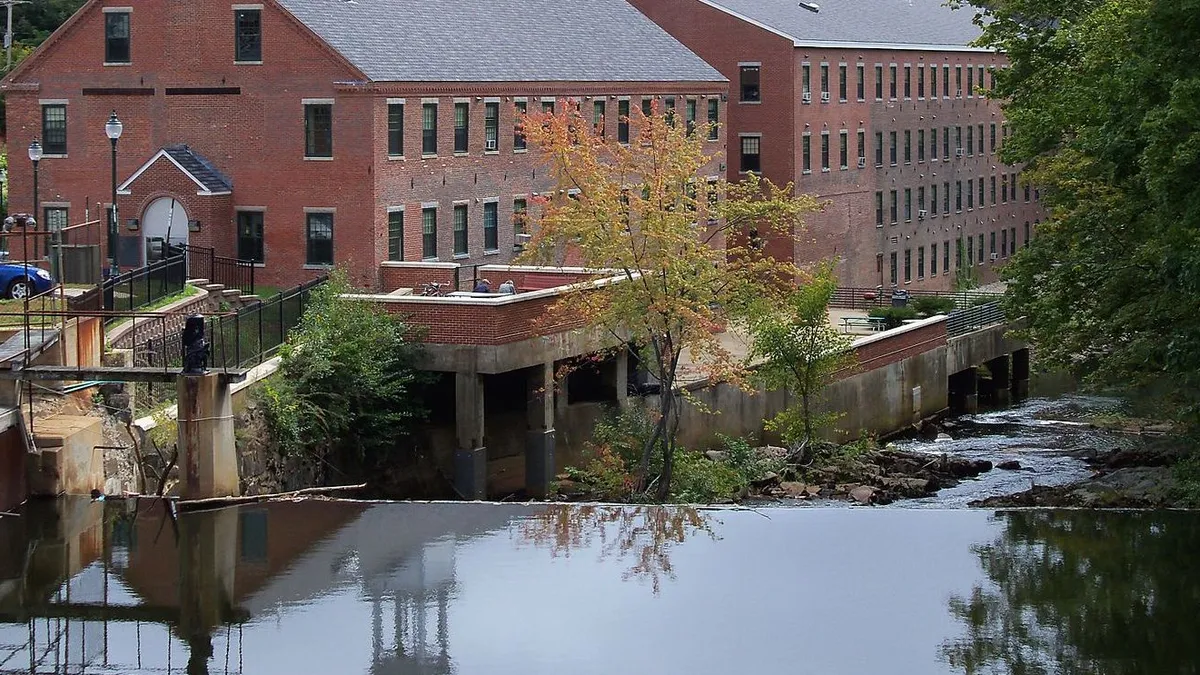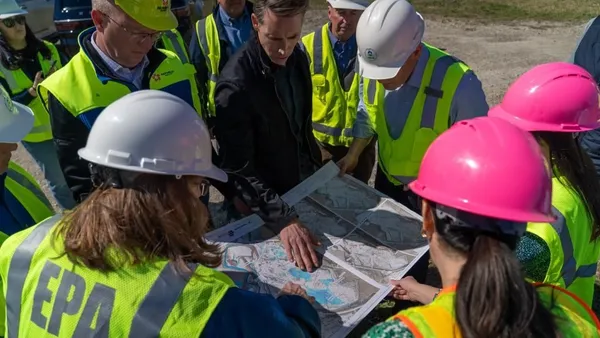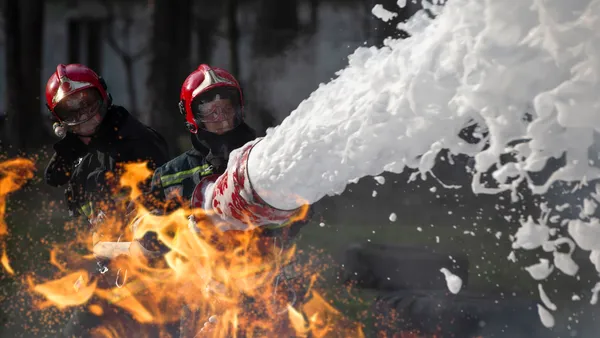UPDATED, June 13, 2018: The New Hampshire Department of Environmental Services granted Waste Management conditional approval for a vertical and horizontal expansion of the Turnkey Landfill on June 11, including the necessary wetlands setback waiver.
DES acknowledged comments about groundwater contamination, berm stability and other environmental concerns, but ultimately determined these issues to either be unfounded or addressable through continued monitoring.
Because Turnkey has become a more popular export destination for states such as Massachusetts, the permit does include a condition that Waste Management "shall make available disposal capacity for New Hampshire generated solid waste for the entire operating life of the facility." DES projected that New Hampshire could face a "shortfall in disposal capacity" by 2020 if this expansion wasn't approved based on the current status of other sites in the states. If construction proceeds as planned, Turnkey could now remain open until at least 2034.
Dive Brief:
- Waste Management's proposal for a 58.6-acre expansion of the Turnkey Landfill in Rochester, NH is now before the state's Department of Environmental Services (DES) after a brief extension of the public comment period. If the necessary permits are approved, and a wetlands setback waiver is granted, this could extend the 1,200 acre site's lifespan from 2024 to 2034.
- More than half of the 1.4 million tons buried at the site in 2017 came from outside the state. Much of the environmental opposition has been regional too, as reported by the Foster's Daily Democrat. The New England-based Conservation Law Foundation (CLF) has submitted comments opposing the plan based in part on the site's proximity to the Isinglass and Cocheco rivers, the stability of proposed earth berms, and the presence of groundwater contaminants.
- In an email to Waste Dive, Waste Management's local public affairs manager Garrett Trierweiler described the berms as "a common and proven technology used at landfills and other civil engineering applications." As for the presence of volatile organic compounds such as 1,4-dioxane, PFOA and PFOS recorded at the site, the company maintained its position that "specific sources of these compounds have not been identified."
Dive Insight:
Waste Management has been running Turnkey since 1983 and this wouldn't be the first expansion. Currently, the company is burying waste on top of the original clay-lined cells and aims to do the same moving forward. The proposed maximum height of this expansion would be 22 feet.
Compared to other recent landfill expansion proposals in New England, the Turnkey process has been relatively quiet. The project already has local approval, and is seen by some as a financial necessity for Rochester. During 2017, Waste Management paid $1.68 million in property taxes and represented a significant portion of local revenue. Waste Management has previously argued that it also provides an economic benefit to Rochester by employing 150 people, supporting community events and preserving some land for conservation.
Increased community benefit agreements have become commonplace for new or expanded landfills and waste-to-energy facilities in recent years, from California to Ireland. Hoping to avoid the pitfalls of eventually losing these payments, as seen in other small municipalities with landfills, Rochester has begun accumulating an economic development reserve fund.
When asked whether new community terms had been proposed as part of the expansion, Trierweiler said Waste Management had agreed to provide "increased benefits" for the city. "This includes waste collection and recycling services in the City, a residential drop off area at the Turnkey facility, and cash payments per ton for commercial waste received at the facility," he wrote.
In the eyes of CLF, and some concerned local residents that enlisted their assistance, none of this will matter if the Turnkey expansion causes environmental damage.
The groundwater contamination, which could leach into the wetlands and rivers, is one key area. Trierweiler said "several possible in-landfill sources are under investigation as are other sources such as mobile equipment and surface activities."
As for the stability of proposed earth berms, Waste Management cited multiple existing examples at Turnkey, as well as its Crossroads site in Maine and Tullytown site in Pennsylvania. It also pointed to use of these berms and outside sites such as Cherry Island in Delaware, Lancaster Landfill in Pennsylvania and Millersville Landfill in Virginia.
Another factor is the required relocation of graves from a nearly 230-year-old burial ground. Much of this work has already been completed, and Waste Management plans to place a historical plaque of some type in the spring.
The DES is expected to make a decision on the various permits required at some point this year or early 2019. If approved, the Turnkey expansion is scheduled to begin in 2020.















